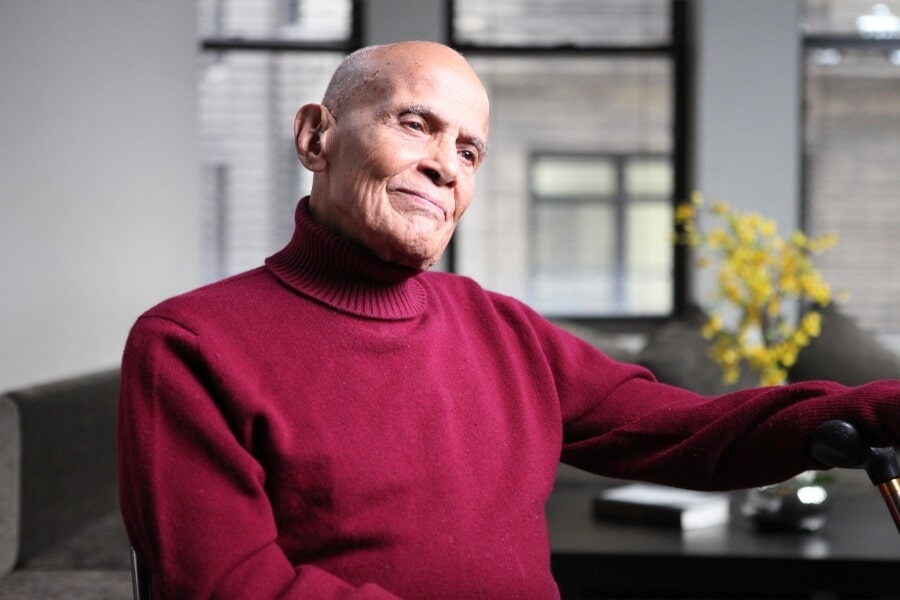Whenever Harry Belafonte performed in Los Angeles, my parents took us to see that gorgeous man. Somehow, even as a child, I knew he mattered. I always remembered one moment in particular, when he stopped the “day-os” and went to a corner of the stage with a lone guitarist. The haunting song was called “Those Three Are On My Mind.” My parents wanted me to know that it was about the three young civil rights activists who were murdered in the South trying to register voters. The lyrics were heartbreaking (“I think of Andrew and his dark-eyed bride . . . and three proud mothers weeping side by side”), but I never heard the song again.
Belafonte, who has just passed away, led a life of activism, often alongside his close friend Sidney Poitier. I dreamt for years about writing a play about their complicated relationship, until I was convinced that a White woman would not be the one to do that. (I settled for numerous essays.) They met as dirt-poor immigrants, toiling behind the stage of a Harlem theatre. Poitier dreamt of being an actor while Belafonte sang a little. Within a decade, he became the first Black solo artist to sell a million LPs; Poitier the first Black actor to win an Oscar.
Read More: Paul Newman and Me: Memories of Those Blue Eyes
A Voice for Song—and Equality
They were important voices for equality, though Belafonte was always the one doing the pushing. He convinced a reluctant Poitier to join him on a dangerous trip to Greenwood, Mississippi, to carry money to activists. They were almost killed by the Klan and had to share a bed that night. “Never again,” Poitier said.
They were almost killed by the Klan and had to share a bed that night.
But then, they were together marching in Washington with their friend Dr. King. Another threat to their friendship came when Belafonte wanted to do a concert before King’s funeral. Poitier thought the timing was wrong and won that argument. A final break came when Belafonte was preparing a television movie on Nelson Mandela and had Jane Fonda and Marlo Brando ready to co-star with the great Poitier. But Poitier dropped out of the project. “For our friendship, this was a radical breach,” said Belafonte later. “We went away from each other.”
One ironic note is that Poiter received the Medal of Honor from Barack Obama. Belafonte was never invited to the first Black president’s White House.
Face to Face . . . Finally
Poitier died almost exactly a year ago, but Belafonte is the one we are remembering now. I never quite met the man, but my daughter and I were at an off-Broadway play one night when we noticed that he was in the audience. My daughter, knowing of my lifelong, unrequited love affair, insisted I say something to him. So, we waited outside as he signed a few autographs and then, assisted by a cane and led by his wife, the old but still gorgeous man started down the street.
I went up to him, and I took a chance.
I went up to him, and I took a chance, having no idea what his memory or hearing were like. “My favorite song ever written,” I said into his ear, “’Those Three Are On My Mind.’”
He stopped, smiled, and said, “Pete Seeger, greatest song ever written.”
Goodbye, Harry. You will forever stay on my mind.
Read More: My Father and Gorbachev: Memories of Two Peacemakers
***
Michele Willens is the author of From Mouseketeers to Menopause.





















0 Comments